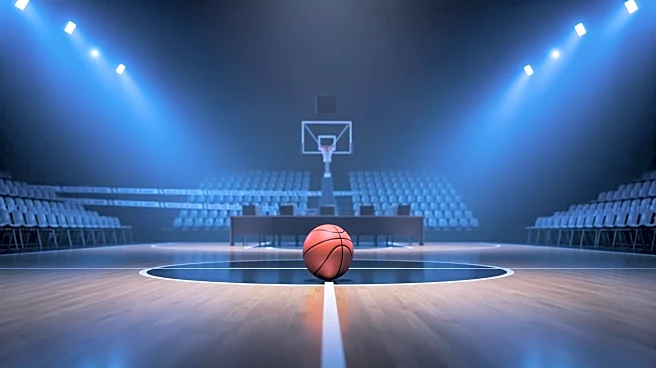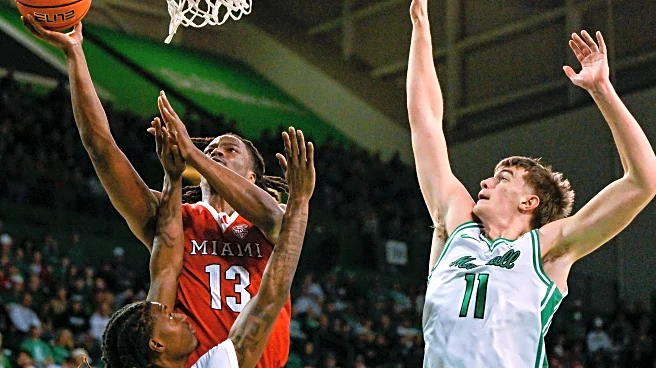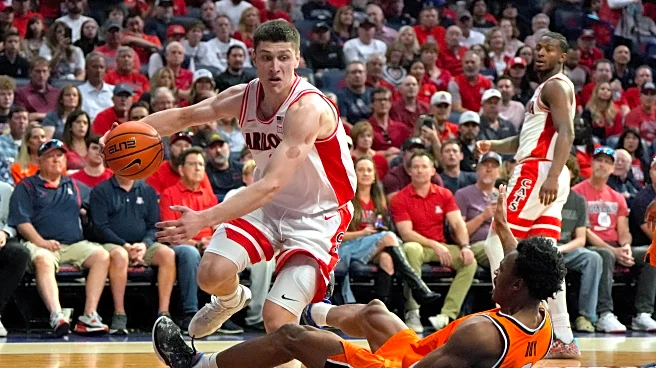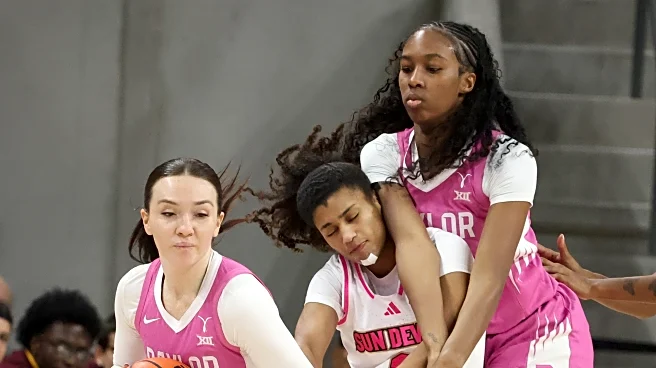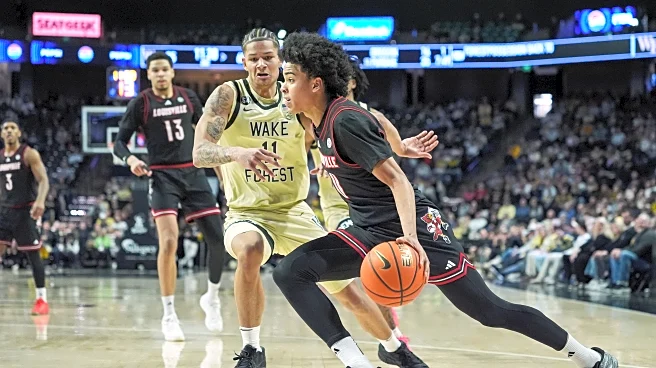What's Happening?
Cooper Flagg, a rookie star for the Dallas Mavericks, has acknowledged the team's disappointing performance following their 123-114 loss to the Phoenix Suns, which dropped their record to 3-9. Flagg expressed that the fans have not been given much to cheer
for, attributing the team's struggles to various factors, including the recent trade of Luka Doncic to the Los Angeles Lakers and Kyrie Irving's ACL injury. Despite these setbacks, Flagg noted the fans' continued support and positivity during games. The firing of General Manager Nico Harrison, who faced criticism from fans, marks a potential turning point for the team as they aim to rebuild and improve their performance.
Why It's Important?
The Dallas Mavericks' current situation highlights the challenges faced by sports teams during transitional periods. The departure of key players like Luka Doncic and injuries to others such as Kyrie Irving and Anthony Davis have placed significant pressure on the team and its new star, Cooper Flagg. The firing of GM Nico Harrison could signal a shift in strategy and management, potentially impacting the team's future performance and fan engagement. This development is crucial for stakeholders, including fans, players, and management, as it may influence ticket sales, team morale, and long-term planning.
What's Next?
The Mavericks are expected to focus on rebuilding and strategizing to improve their performance. Cooper Flagg's role as a rookie star will be pivotal in this transition, as he aims to lead the team and regain fan support. The team may explore new trades or acquisitions to strengthen their lineup and address current weaknesses. Additionally, the management will likely work on improving team dynamics and addressing fan concerns to foster a positive environment and enhance game attendance.
Beyond the Headlines
The firing of Nico Harrison and the team's struggles may have deeper implications for the Mavericks' organizational culture and long-term strategy. This period of transition could lead to a reevaluation of team values, leadership styles, and player development approaches. The situation also raises questions about the impact of high-profile trades and injuries on team stability and fan loyalty, potentially influencing broader trends in sports management and fan engagement.
